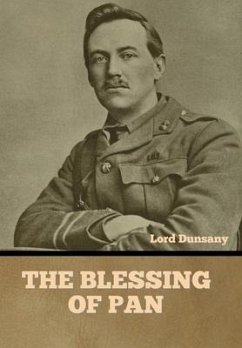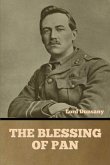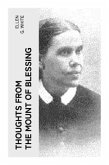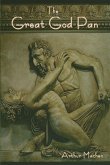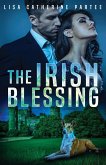The Blessing Pan is one of those ambiguously fantastic novels in which it's never quite clear whether the magic is taking place in reality or in the minds of the characters. Elderick Anwrel, a nineteenth-century Anglican priest, finds that his parishioners have started to worship Pan, Greek god of shepherds. His struggle to win them back to the fold forms an epic novel of spiritual warfare. Lord Dunsany's writing is dense and rich, and readers used to contemporary fantasy may find The Blessing of Pan very slow-paced. The 'action' is definitely more metaphysical and mental than physical- Anwrel's struggle with Pan takes place mainly in agonised conversations and soul-searching. But it's definitely a very rewarding book to the persevering reader. An ambivalent, thought-provoking story about the needs of community versus individual conscience, industrialisation versus the wilderness and faith versus cynicism. (Eleanor Toland) About the author: Edward John Moreton Drax Plunkett, 18th Baron of Dunsany (24 July 1878 - 25 October 1957, usually Lord Dunsany) was an Anglo-Irish writer and dramatist. Over 90 volumes of fiction, essays, poems and plays appeared in his lifetime. He gained a name in the 1910s as a great writer in the English-speaking world. Best known today are the 1924 fantasy novel, The King of Elfland's Daughter, and his first book, The Gods of Pegāna, which depicts a fictional pantheon. Many critics feel his early work laid the grounds for the fantasy genre. Born in London as heir to an old Irish peerage, he was raised partly in Kent, but later lived mainly at Ireland's possibly longest-inhabited home, Dunsany Castle near Tara. He worked with W. B. Yeats and Lady Gregory supporting the Abbey Theatre and some fellow writers. He was a chess and pistol champion of Ireland, and travelled and hunted. He devised an asymmetrical game called Dunsany's chess. In later life, he gained an honorary doctorate from Trinity College Dublin. He retired to Shoreham, Kent in 1947. In 1957 he took ill when visiting Ireland and died in Dublin of appendicitis. Dunsany was a prolific writer of short stories, novels, plays, poetry, essays and autobiography. He published over 90 books in his lifetime, not including individual plays. Books have continued to appear, with more than 120 having been issued by 2017. Dunsany's works have been published in many languages. The then Edward Plunkett began his literary career in the late 1890s with published verses such as "Rhymes from a Suburb" and "The Spirit of the Bog", but he made a lasting impression in 1905. Writing as Lord Dunsany he produced the well-received collection The Gods of Pegāna. Dunsany's most notable fantasy short stories appeared in collections from 1905 to 1919, before fantasy had been recognised as a distinct genre. He paid for the publication of the first collection, The Gods of Pegāna, earning a commission on sales. This he never again had to do. The stories in his first two books, and perhaps the beginning of his third, were set in an invented world, Pegāna, with its own gods, history and geography. Starting with this, Dunsany's name is linked to that of Sidney Sime, his chosen artist, who illustrated much of his work, notably up to 1922. ...(wikipedia.org)
Hinweis: Dieser Artikel kann nur an eine deutsche Lieferadresse ausgeliefert werden.
Hinweis: Dieser Artikel kann nur an eine deutsche Lieferadresse ausgeliefert werden.

